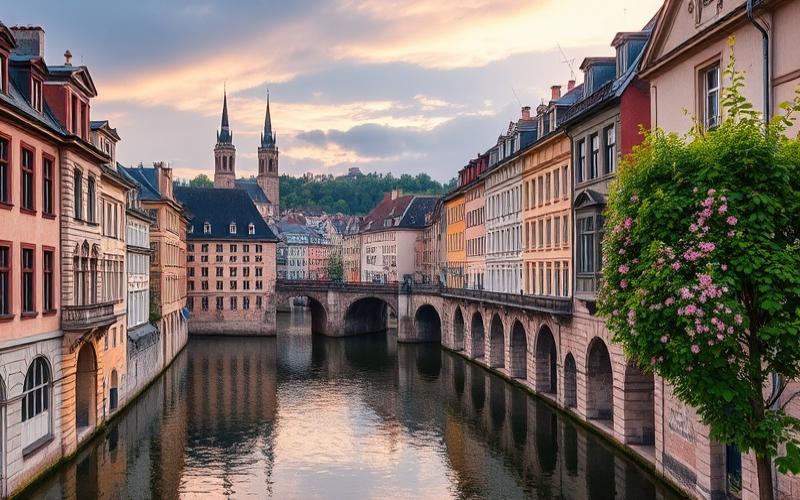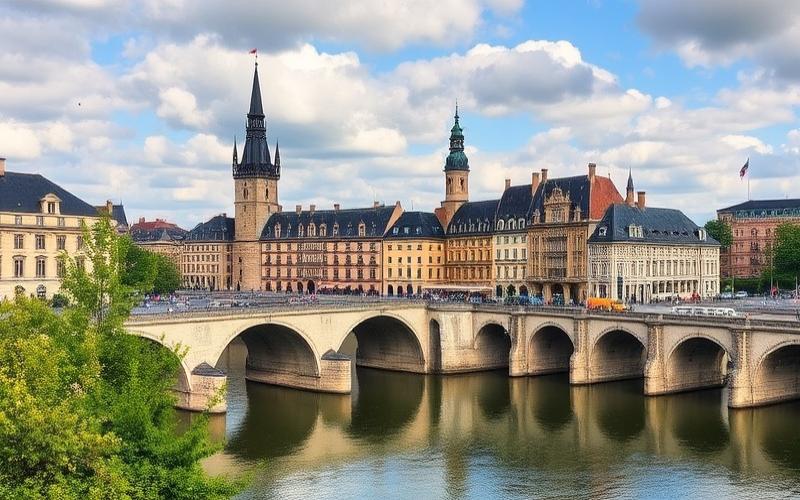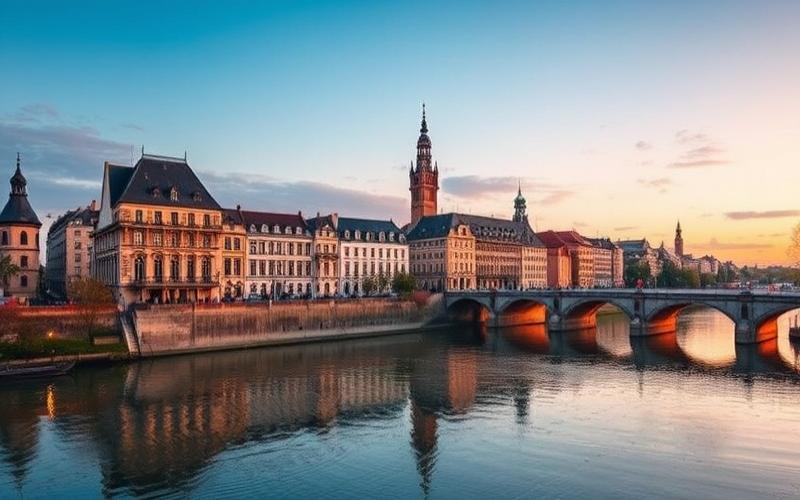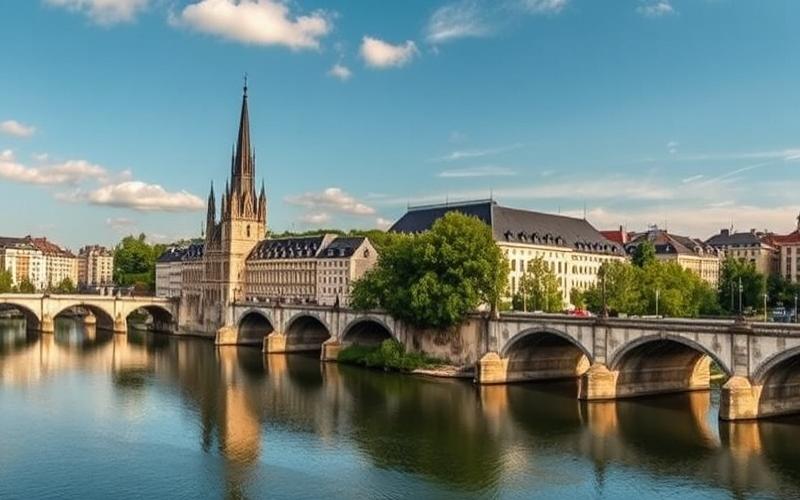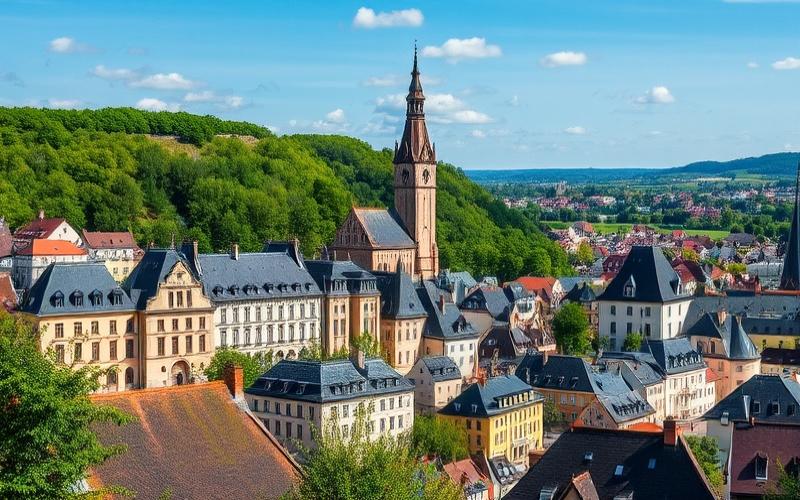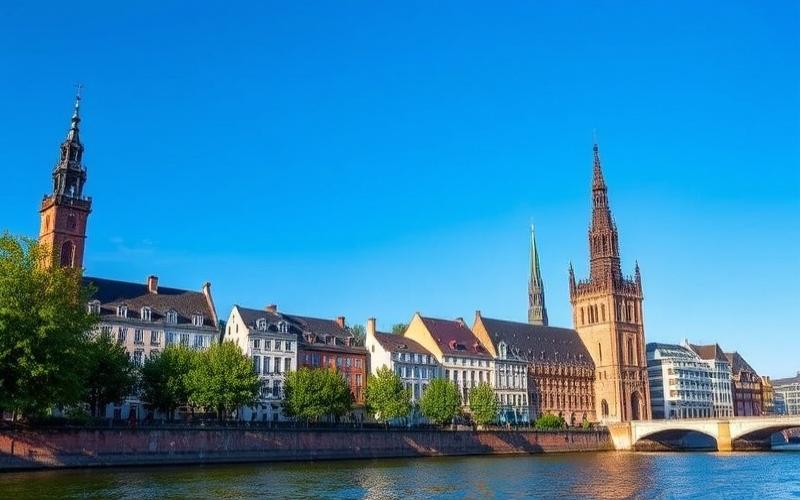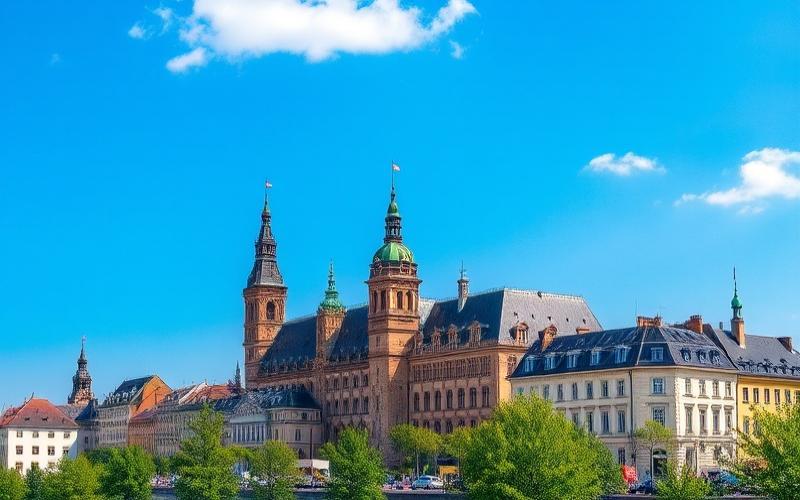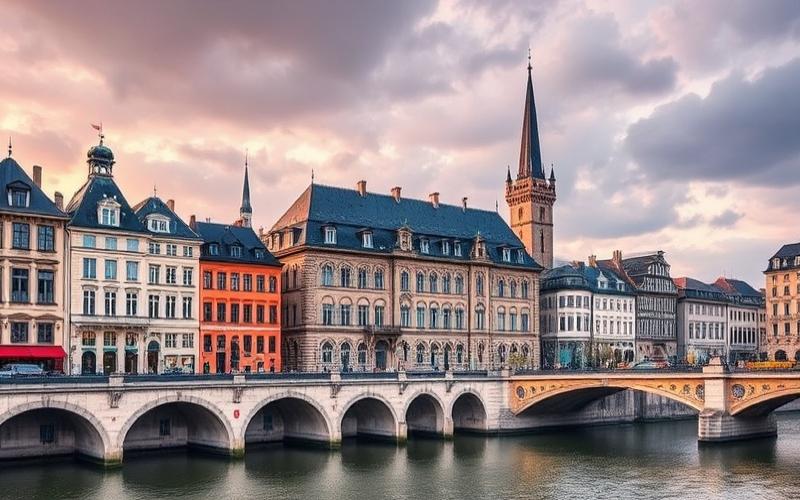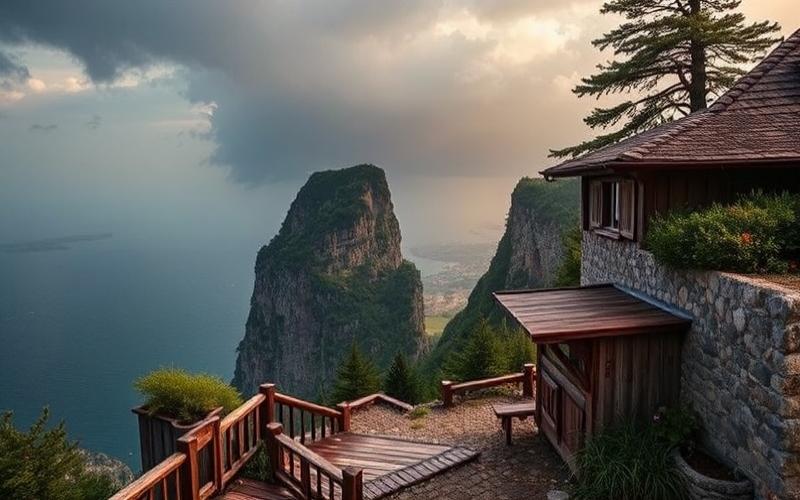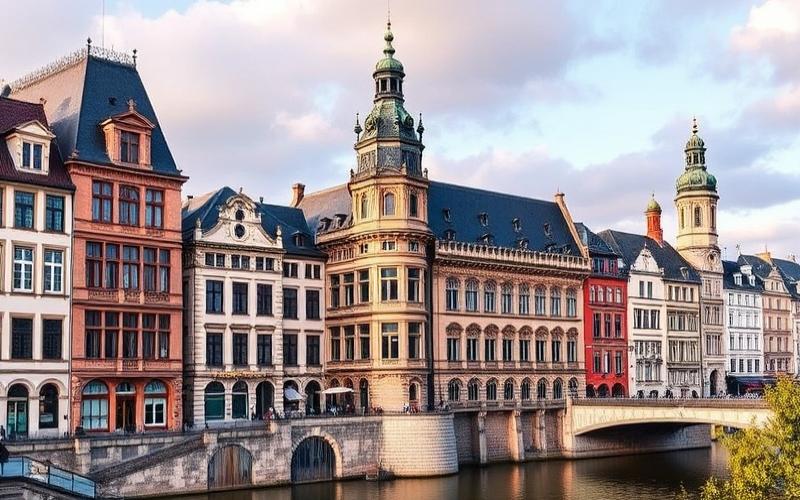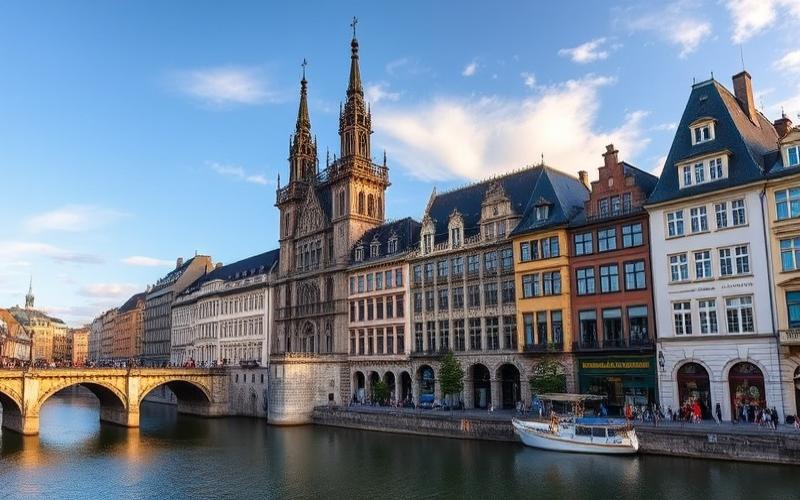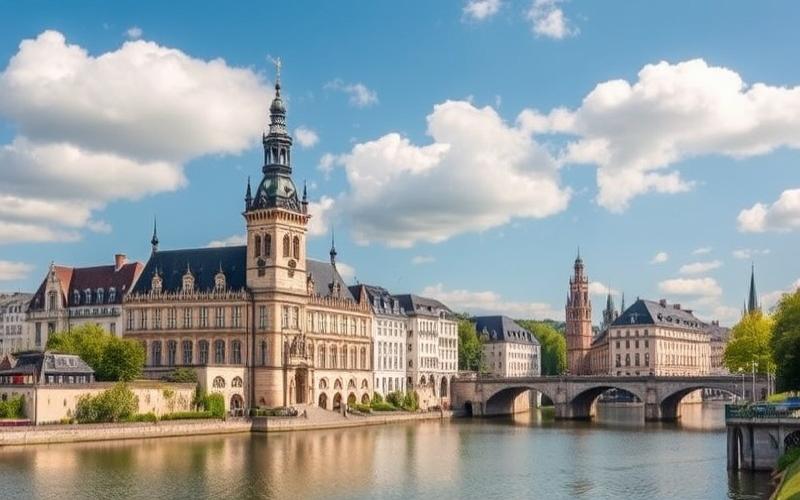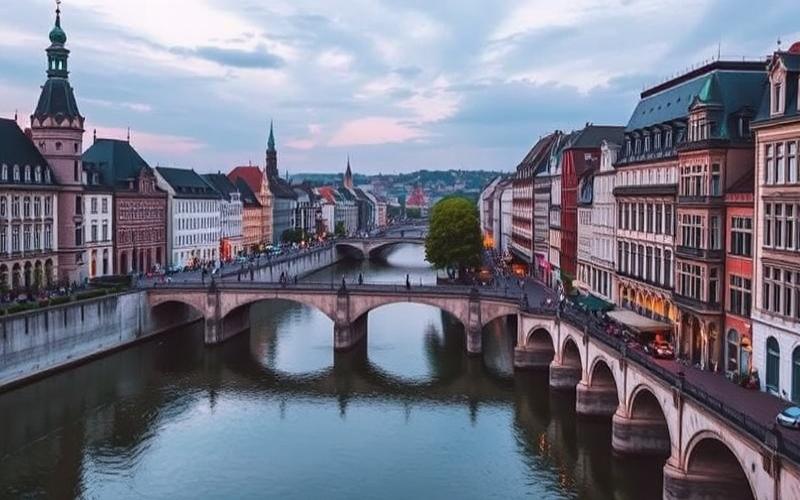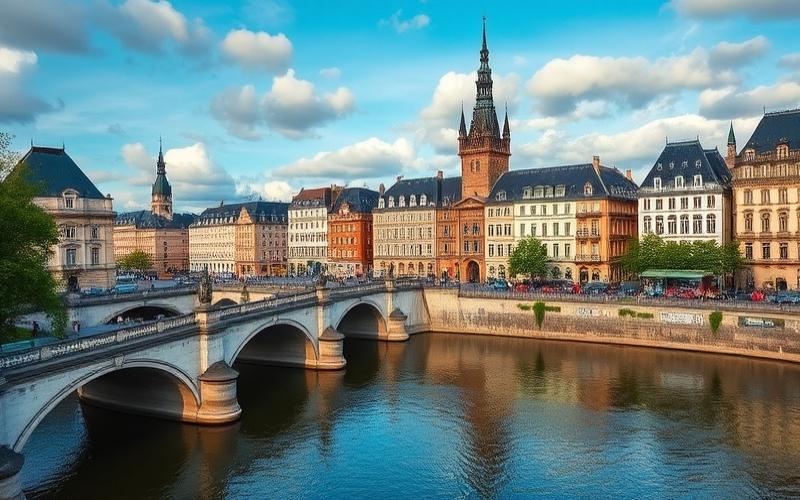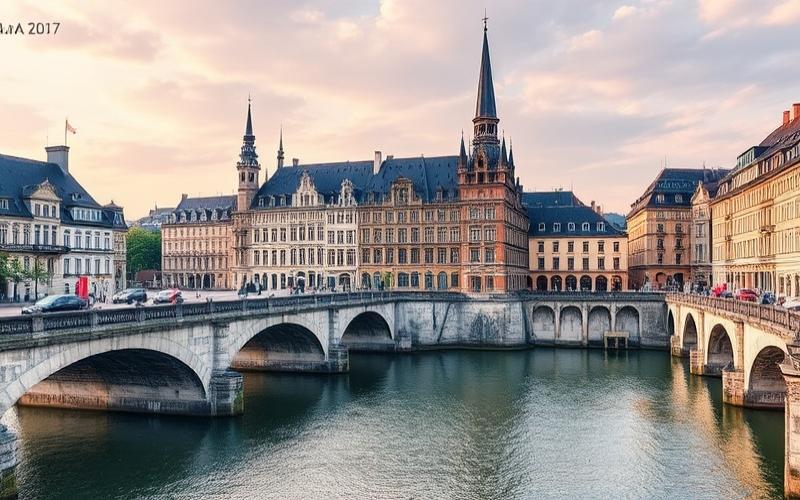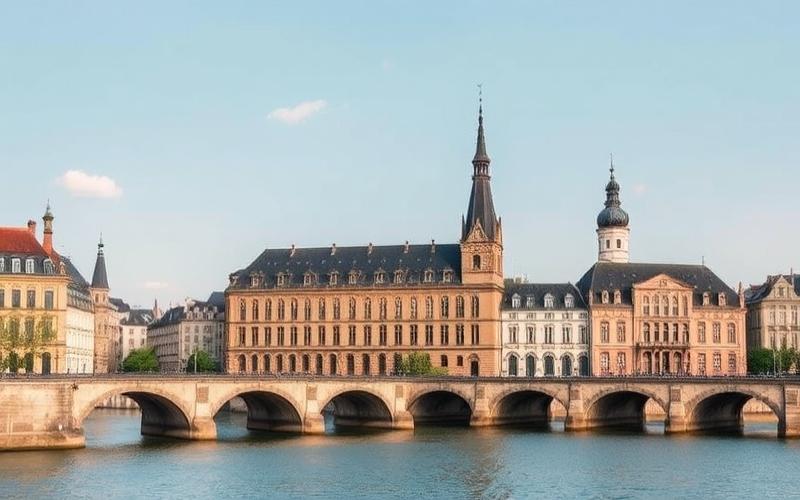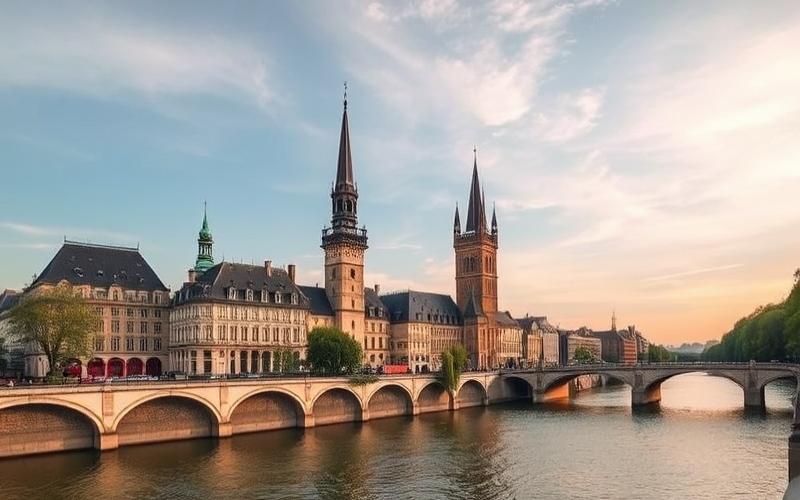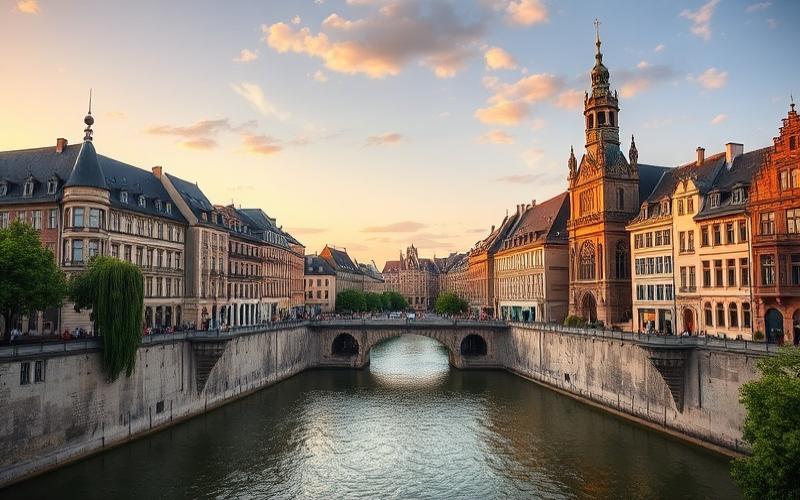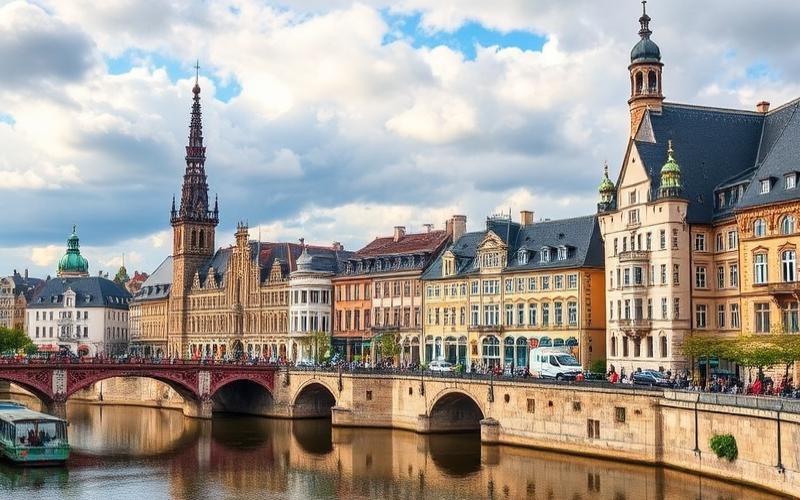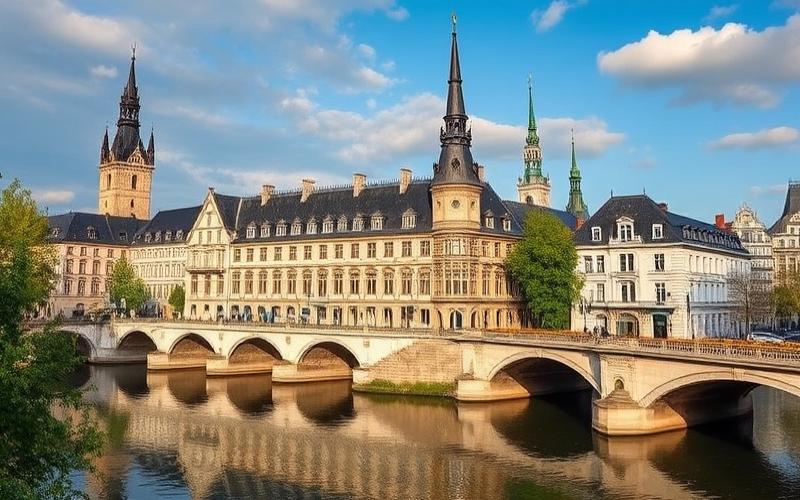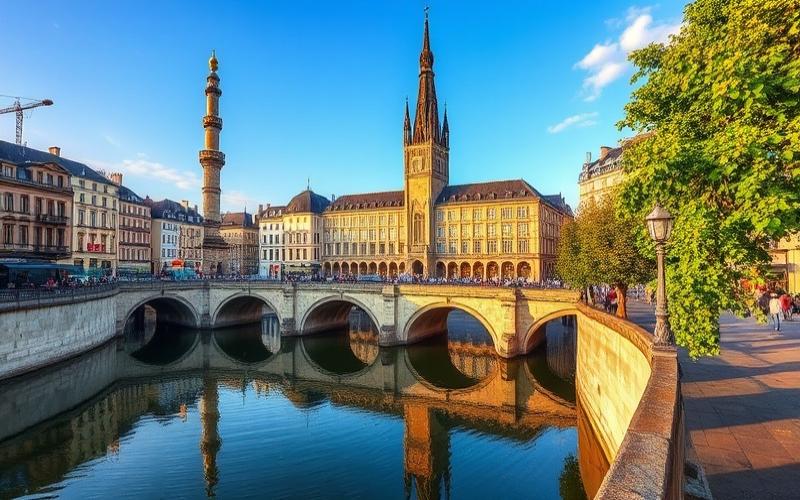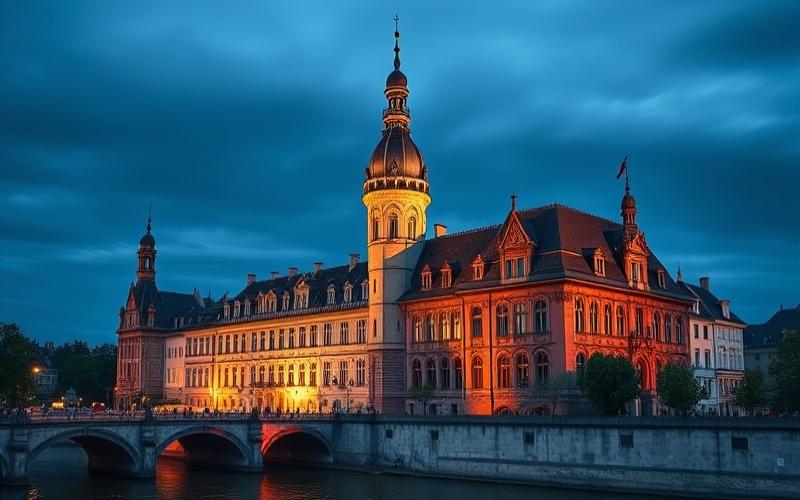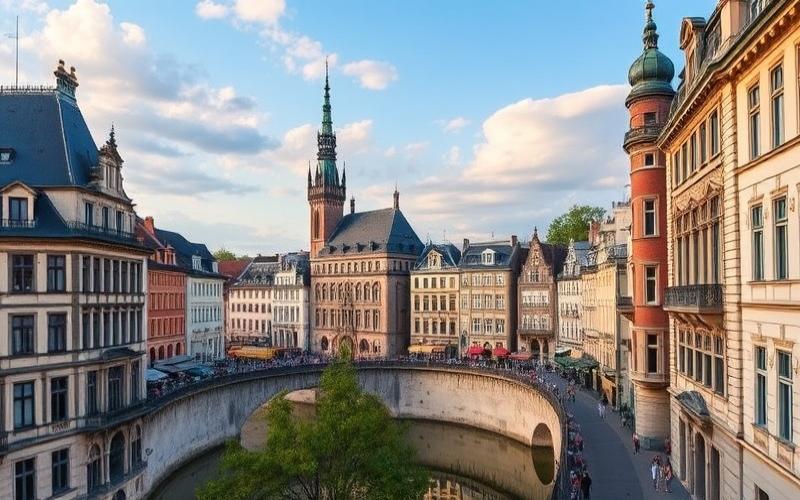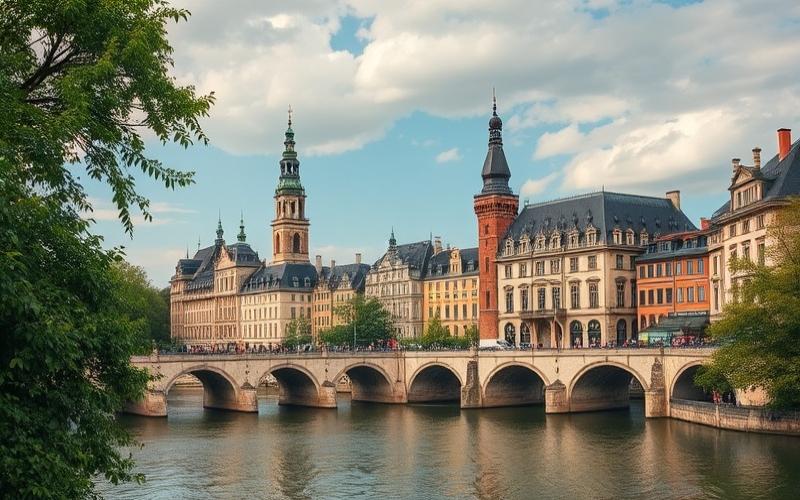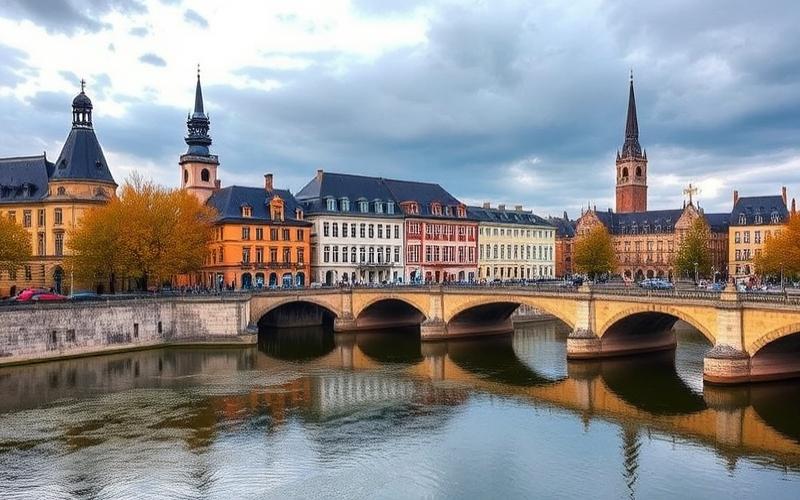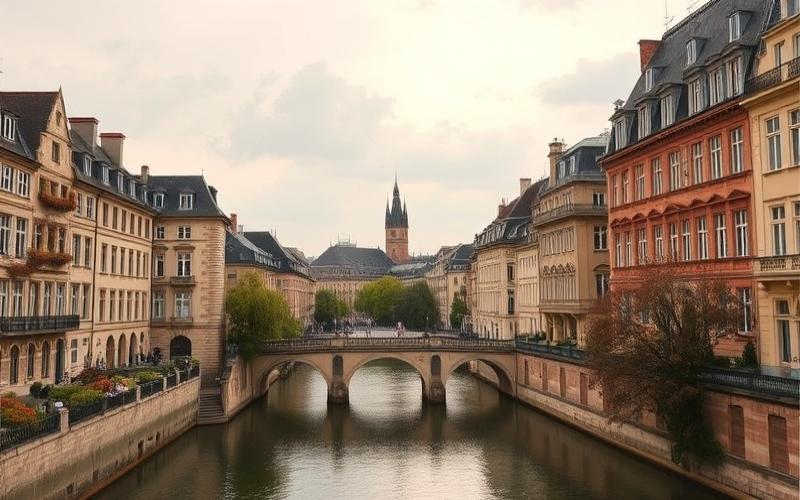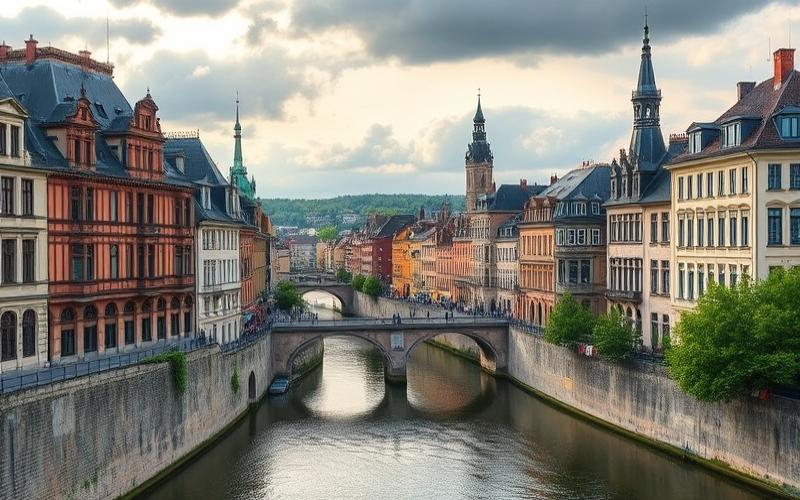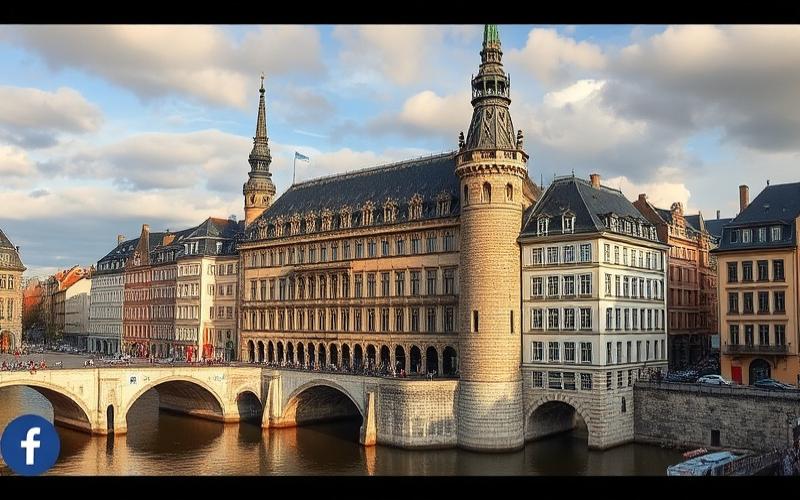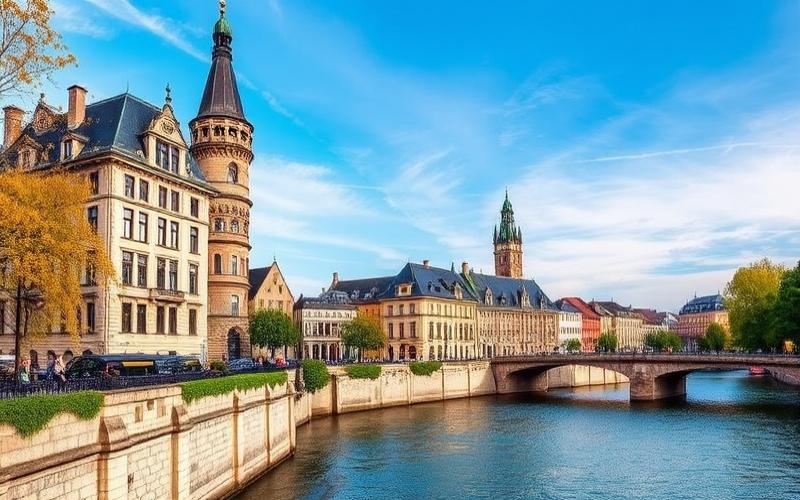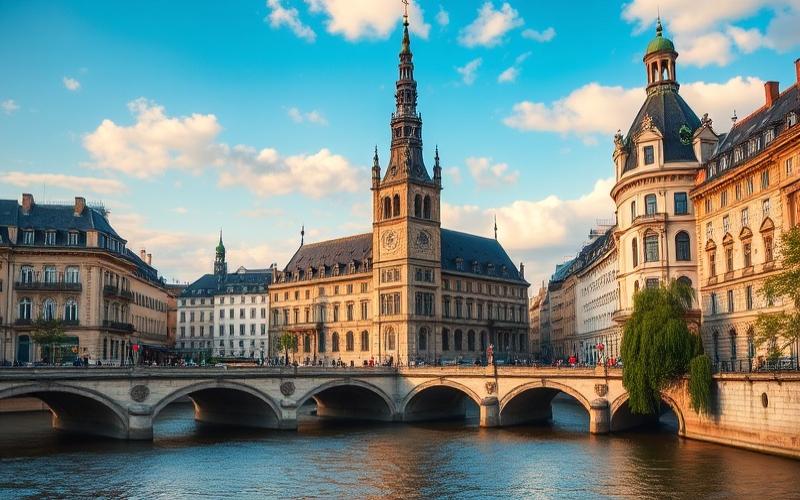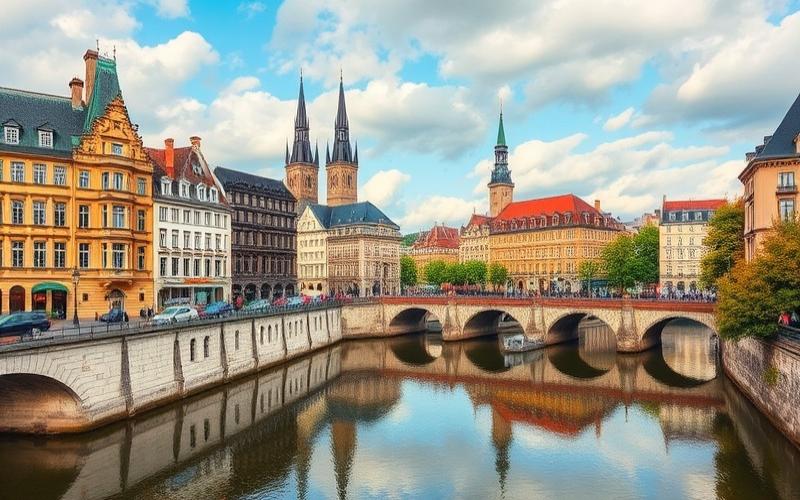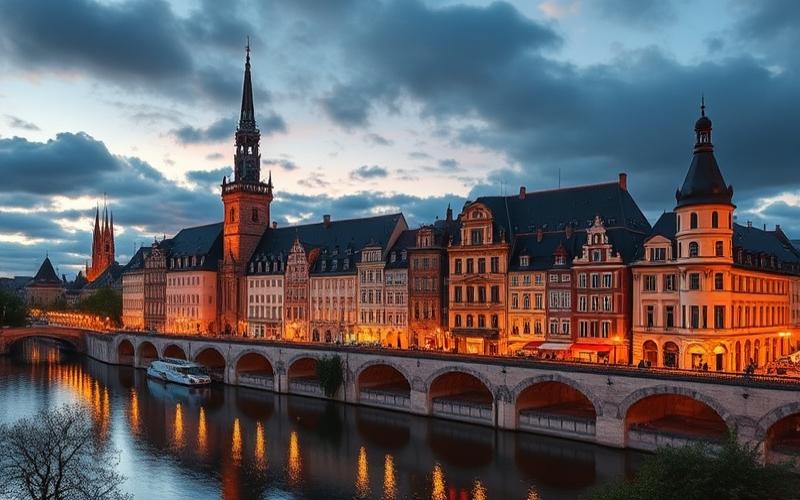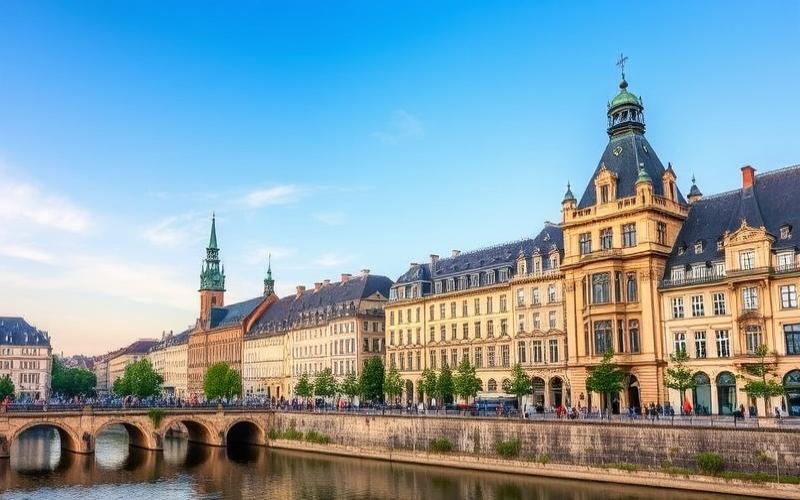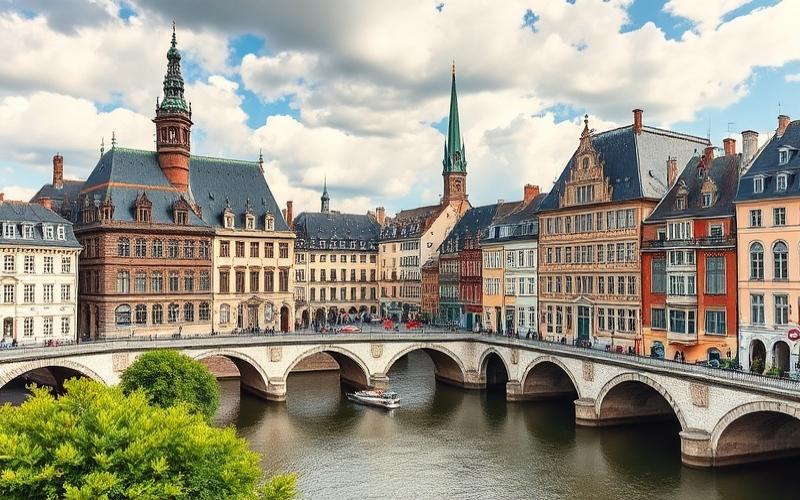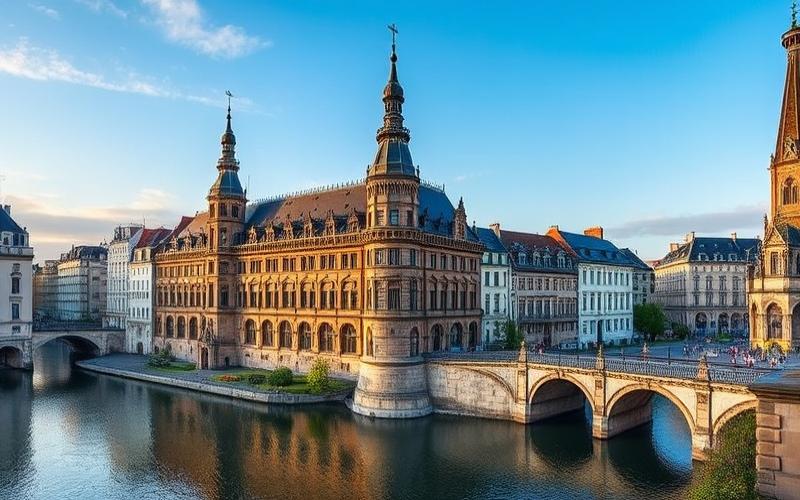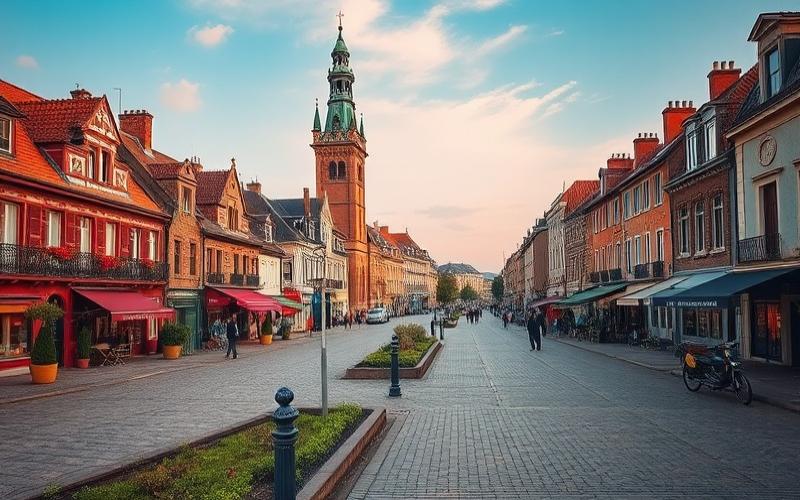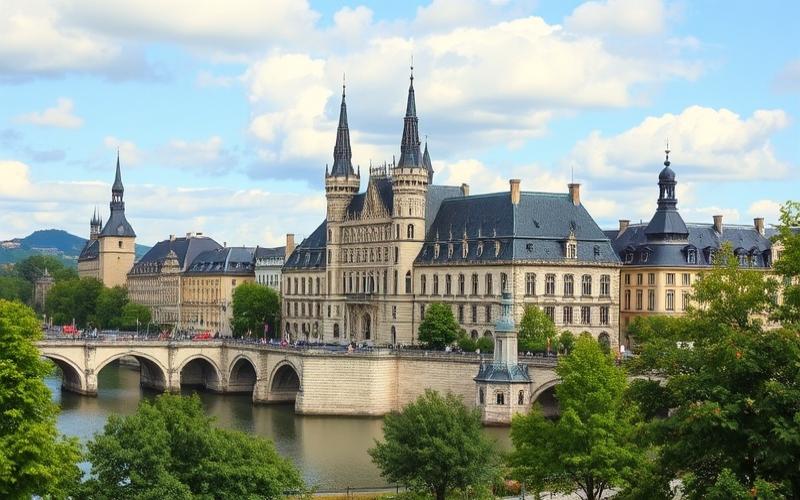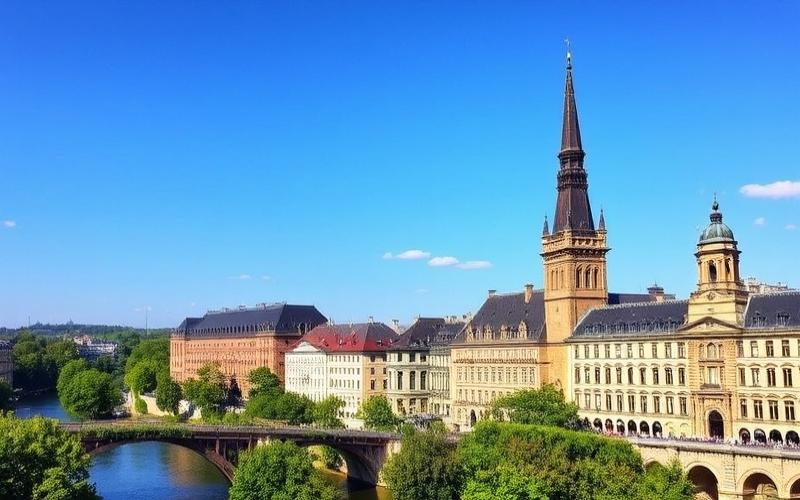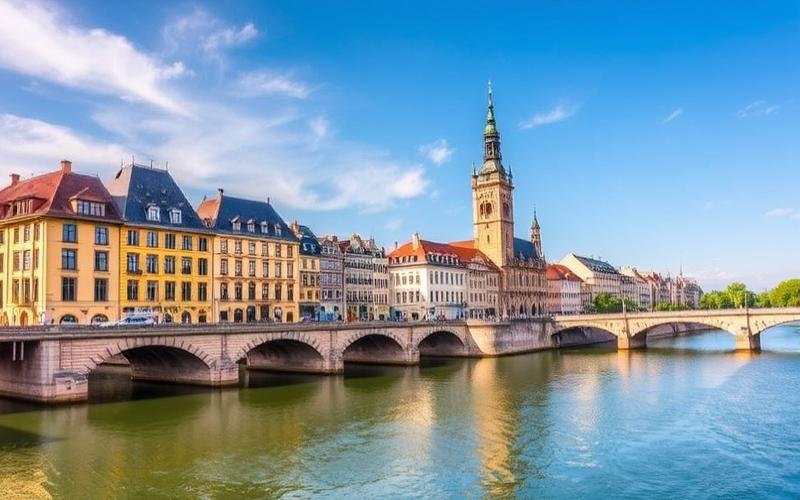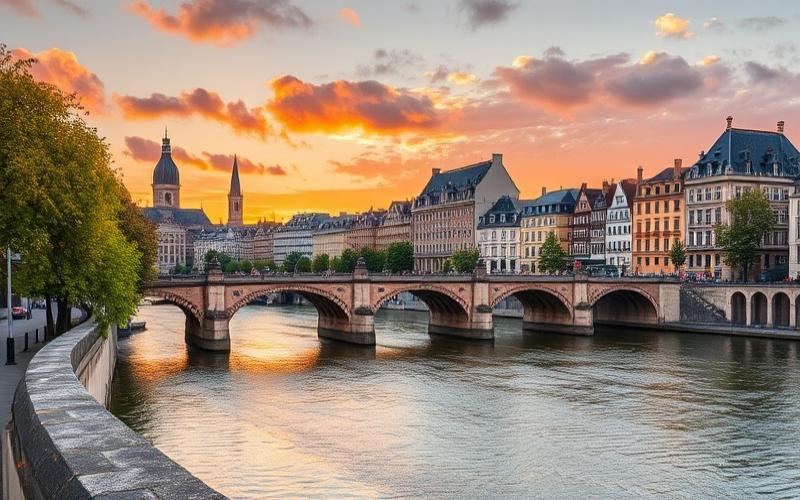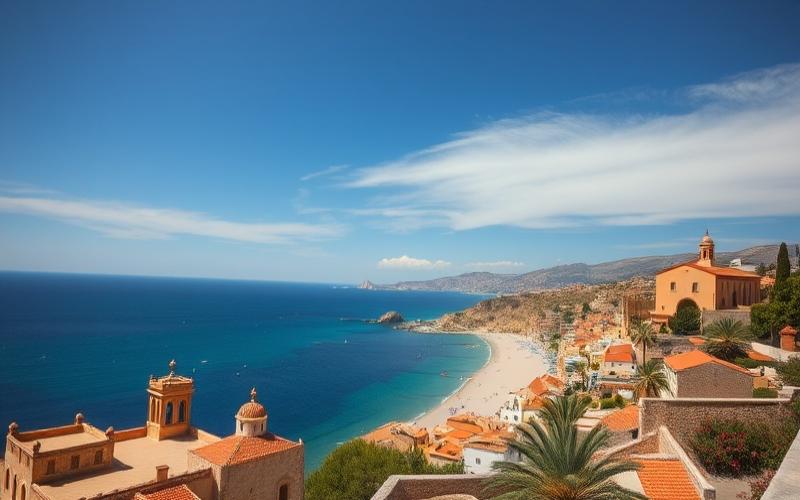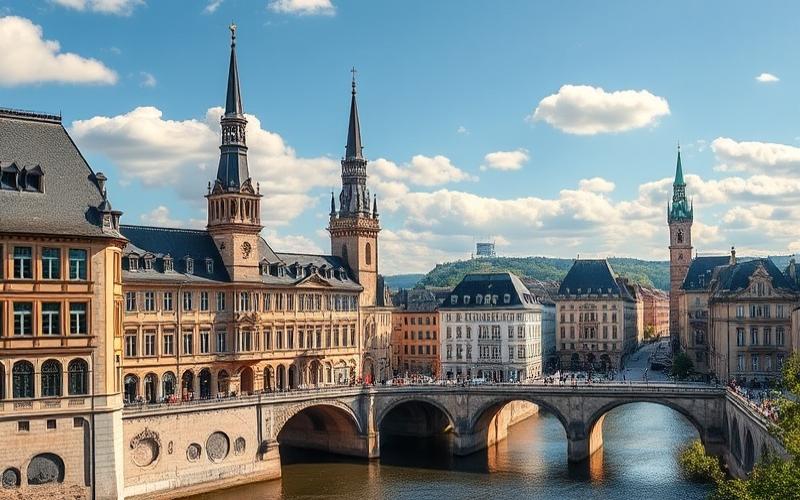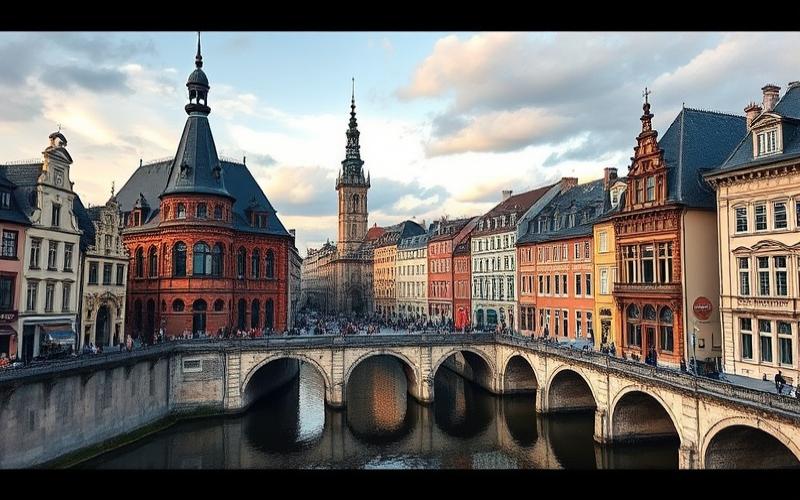
 Published on and written by Cyril Jarnias
Published on and written by Cyril Jarnias
Investing in Luxembourg’s Hotel Market: A Comprehensive Checklist
Investing in Luxembourg’s hotel market may seem intimidating, but with careful planning and a clear understanding of crucial steps, it can prove to be a lucrative venture. In this article, we’ll guide you through a comprehensive checklist, covering essential aspects such as financing, legal considerations, and Luxembourg’s specific regulatory requirements.
Key Steps for a Successful Investment
You’ll discover how to:
- Properly evaluate a hotel property
- Identify potential tax benefits
- Monitor critical elements during purchase
Good to Know:
Luxembourg offers a stable regulatory framework and attractive tax incentives for investors in the hotel sector.
Analysis of the Luxembourg Hotel Landscape
By taking an in-depth look at the Luxembourg hotel landscape, you’ll be better prepared to make informed and strategic decisions, ensuring your investment is well protected and its profitability optimized.
Overview of Luxembourg’s Hotel Market
The Luxembourg hotel market shows dynamic growth, supported by strong tourist demand and the regular arrival of new establishments. By 2025, the hotel sector’s revenue is expected to reach approximately $56 million. This market is characterized by a diversified offering, ranging from budget hotels to luxury establishments, with a growing presence of boutique hotels and eco-friendly accommodation solutions.
Statistics and Geographic Distribution
| Year | Number of Hotels (estimate) | Revenue (M USD) |
| 2025 | ~220-240 | 56.26 |
The majority of hotels are concentrated in Luxembourg City (particularly near the central train station and Findel Airport), but establishments also exist in the Moselle region, the Ardennes, and the industrial south. This distribution caters to both business clientele and leisure tourists.
New Trends and Constructions
- Recent Openings: Arrival of a Moxy hotel at Findel Airport, upcoming opening of the Luxembourg Marriott Hotel Alfa facing the central station, launch of a luxury boutique hotel, and development of a budget hotel in the Cloche d’Or district.
- Developing Segments: Growing prominence of boutique hotels, long-stay accommodations, and sustainability-focused offerings.
Tourist Traffic
- International Tourists: Majority, with a significant share of business clientele, particularly related to European institutions and financial companies.
- Leisure Tourists: Attracted by historical heritage, gastronomy, natural landscapes, and cultural events.
- Seasonality: Demand is strong in spring and summer, but also during institutional events and conferences.
Main Customer Segments
- Business: Represents a significant share, thanks to the presence of European institution headquarters, banks, and international companies.
- Leisure: Individual tourists, families, organized groups, visitors for cultural or sporting events.
- Long Stay: Professionals on assignment, temporary expatriates, relocating families.
Challenges and Opportunities for Investors
Challenges:
- High land and construction costs in Luxembourg City.
- Increased regulatory pressure on environmental sustainability and energy efficiency.
- Human Resources: Recruitment difficulties in the hotel industry, requiring training and attractiveness policies.
Opportunities:
- Continuous growth of business and conference tourism.
- Development of leisure tourism through the enhancement of natural and cultural heritage.
- Niche markets to exploit: Lifestyle hotels, eco-friendly accommodations, personalized and digital offerings.
Comparative Analysis with Neighboring Countries
| Criterion | Luxembourg | Belgium | France (Grand Est) | Germany (Saarland/Rhineland) |
| Hotel Market Size | Moderate | Larger | Very Large | Large |
| Recent Growth | Positive | Stable | Moderate | Positive |
| Business Clientele | Very Strong | Average | Strong in Strasbourg | Strong in Frankfurt |
| Average Occupancy | High on Weekdays | Variable | Variable | High in Hubs |
| New Constructions | Dynamic | Moderate | Less Dynamic | Dynamic |
| Specific Challenges | Land, HR | Costs, HR | Land, HR | HR, Regulation |
Luxembourg stands out with a high proportion of business clientele and an upscale strategy, while its neighbors focus more on leisure volumes or transit tourism. Its small size is offset by the high profitability of establishments located in the capital and near economic and institutional hubs.
Summary of Key Points
- Dynamic, growing hotel market, driven by upscale offerings and diversification.
- Geographic distribution dominated by the capital, but presence throughout the country.
- Demand supported by business and leisure tourism, with marked seasonality.
- Challenges related to land, environmental regulation, and human resources.
- Opportunities in lifestyle, long-stay, and sustainable accommodation segments.
- Superior performance in occupancy and profitability compared to neighboring markets, but with a more modest market size.
Good to Know:
The hotel market in Luxembourg is modest but dynamic, with about 200 establishments mainly concentrated in Luxembourg City and tourist locations like Echternach and Vianden. Tourist traffic, although seasonal with peaks in summer and during the year-end holidays, is based on a diverse clientele, primarily comprising business travelers, cultural tourists, and nature enthusiasts. Recently, the occupancy rate has seen steady growth, stimulated by international events and strengthened transport infrastructure. The sector is seeing emerging trends like eco-hotels and small luxury establishments, although strict regulation and high land costs shape investment strategies. Comparatively, the Luxembourg market shows solid but less extensive performance than its neighbors, representing growth potential for investors seeking to diversify their portfolio in a stable and prosperous economic framework.
Tips for Buying a Hotel in the Country
Key Factors to Consider Before Buying a Hotel in Luxembourg:
Ideal Location
- Prioritize areas near city centers like Luxembourg City, Esch-sur-Alzette, or tourist hubs (Moselle Valley, Mullerthal).
- Consider proximity to transport infrastructure (train station, airport) and major sites of interest.
- Analyze the schedule of local events (international conferences, festivals, traditional markets) that impact tourist influx.
Specific Regulations and Administrative Requirements
| Requirement | Detail |
|---|---|
| Hotel Status | Minimum 10 bedrooms; each room must be equipped according to standards (lighting, ventilation, sink with hot/cold water…) |
| Establishment Authorization | Mandatory application to operate a hotel; issued after verification of compliance with hotel standards |
| Mandatory Training | Accelerated training on hygiene/food safety and fundamental rights required if activity >90 overnight stays/year |
| Permits & Complementary Licenses | Local authorizations depending on services offered (restaurant, bar…), fire safety compliance |
Due Diligence Before Acquisition
- In-depth analysis of profitability potential through detailed financial study.
- Complete technical evaluation of facilities: general condition of the building, compliance with current standards.
- Local competitive study to identify optimal pricing positioning and anticipate available margins.
- Legal verification: absence of ongoing disputes related to the property or operation.
Framing this step with close collaboration with local experts is highly recommended.
Importance of Consulting Local Professionals
- Real estate agents specialized in the Luxembourg hotel sector to target the best opportunities
- Lawyers mastering national legislation on commercial real estate to ensure a compliant transaction
- An accountant familiar with Luxembourg taxation to optimize the financial structure
Financing & Available Options
| Option | Description |
|---|---|
| Local Bank Financing | Classic commercial real estate loans through Luxembourg banks |
| Partnerships or Private Funds | Possibility to partner with institutional or private investors |
| Outright Sale | Direct acquisition without required pre-financing until final delivery |
Luxembourg’s economic stability is an asset but it is nevertheless advisable to:
- Regularly assess exposure to European economic fluctuations,
- Consider that hotel activity can be sensitive to global economic cycles as well as sectoral regulatory developments.
Being supported by a local professional network remains essential to secure your investment and optimize its profitability within a strict legal framework.
Good to Know:
When buying a hotel in Luxembourg, it is crucial to choose a strategic location, like Luxembourg City to capture tourist flows and local conference participants. Ensure you fully understand Luxembourg regulations, requiring specific permits for hotel operation. Conduct thorough due diligence by analyzing potential profitability and evaluating facilities, while studying the surrounding competition. Working with local professionals, including real estate agents and lawyers, ensures a transaction compliant with laws. In terms of financing, explore available options from local banks, while considering the impacts of economic fluctuations on hotel investments.
Hotel Due Diligence Steps
Legal and Regulatory Analysis
- Verification of compliance with operating licenses specific to the hotel sector in Luxembourg.
- Check of building permits, urban planning certificates, and authorizations related to fire safety and accessibility.
- In-depth review of legal documentation: statutes, ongoing contracts (lease, suppliers), general meeting minutes, history of potential disputes.
- Validation of compliance with local (municipal) and national standards for hotels, including tax and environmental rules.
- Critical importance to ensure all legal obligations are met to avoid any legal or operational risk upon purchase.
Financial Review
List of key points to check:
- Detailed financial statements: balance sheets, income statements over several periods
- Annual reports on revenue by segment (accommodation, food service…)
- Complete accounting books: general ledgers, aged customer/supplier balances
- Current debt level: ongoing bank loans, leasing
- Tax obligations: recent VAT/corporate tax returns; control of regular payment of local taxes
- Verification of compliance with social obligations towards staff (social contributions)
The analysis allows:
- To establish overall financial coherence
- To detect any tax or accounting risk that could impact the acquisition
- To ensure the hotel is not in a precarious situation
Physical and Technical Evaluation
| Element Evaluated | Method/Control | Objective |
|---|---|---|
| Infrastructure | Visual & technical inspection | General building condition/solidity/age |
| Technical Installations | Industrial process & network audit | Safety/security/regulatory compliance |
| Common Areas | On-site surveys | Customer comfort / accessibility |
| Fire Safety | Verification of mandatory devices | Compliance with local/national standards |
Essential points:
- Regular preventive maintenance ensures the asset’s longevity
- Necessary renovations must be identified to anticipate future costs
Operational Audit
Structured list:
- Complete analysis of internal processes (reception, housekeeping, food service…)
- Identification of inefficiencies or organizational redundancies
- Evaluation of actual functioning versus written protocols
- Customer service quality control
- Interview with current management team to assess experience/expertise
- Ability to maintain or improve performance after acquisition
Market and Competitive Analysis
| Criterion | To Analyze |
|---|---|
| Historical Occupancy Rates | Internal statistics / sector data |
| Tourism Trends | Evolution of Luxembourg visitation |
| Competitive Positioning | Benchmark similar hotels/location |
Other elements:
- Seasonal trends specific to Luxembourg
- Average room price level vs. direct competitors
- Local tourist attractiveness according to events/urban growth
Risks and Opportunities
Structured list:
Potential Risks:
- National/European economic fluctuations impacting tourism
- Unfavorable local/national regulatory change for the hotel industry
- Negative evolution in traveler habits (strong digitalization…)
Identified Opportunities:
- Tourism growth due to Luxembourg public policies
- Possible diversification towards new innovative hotel services
- Investments in energy renovation/CSR improvement allowing for differentiating positioning
Comprehensive due diligence structures each step to inform any strategic decision-making during hotel acquisition in Luxembourg.
Good to Know:
During due diligence for buying a hotel in Luxembourg, start with a legal and regulatory analysis to verify operating licenses and necessary permits, ensuring compliance with local standards. Then, dive into a detailed financial review of revenue reports and debts, while keeping an eye on tax obligations. A physical and technical evaluation is essential to inspect the condition of infrastructure and forecast maintenance and renovation needs. The operational audit will allow you to assess internal processes and the management team to guarantee optimal efficiency. Simultaneously, a comprehensive market analysis will help understand local trends and position the hotel against the competition. Finally, evaluate economic risks or changes in travel habits, while identifying growth opportunities, to make a strategic and informed purchase.
Recent Tourism Statistics in Luxembourg
In 2022, the Luxembourg tourism sector experienced strong growth, far exceeding 2021 figures. Hotels recorded an average occupancy rate of 66% in August 2022 (compared to 44% in 2021). Campgrounds showed an occupancy rate of 83% (compared to 60% the previous year).
Resident clientele also strongly contributed to this progress with 201,793 overnight stays in paid accommodations during the summer high season (163,726 in 2021).
The summer season remains the most dynamic for the sector, driven by a substantial increase in overnight stays and higher attendance at tourist establishments.
| Year | Hotel Occupancy Rate | Campground Occupancy Rate | Resident Overnight Stays |
| 2021 | 44 % | 60 % | 163,726 |
| 2022 | 66 % | 83 % | 201,793 |
The overall annual figures for the entire country are not detailed in recent available results but clearly show a marked and continuous post-pandemic recovery.
Main Visitor Nationalities
Luxembourg mainly attracts tourists from:
- Neighboring countries: Germany, Belgium, France, and the Netherlands
- Other nearby European markets
- A growing international clientele thanks to the recovery of air traffic and recent promotional campaigns
Most Visited Cities and Attractions
Luxembourg City remains the flagship destination with its UNESCO-listed old town.
Among the major sites are:
- The Grund district
- The Bock Casemates
- Vianden Castle
- The Mullerthal region (“Luxembourg’s Little Switzerland”)
- Historic Echternach
List of main tourist hubs:
- Luxembourg Old Town / Bock Casemates
- Vianden Castle
- Mullerthal Trail
- Luxembourg Moselle
- Clervaux & Ardennes
Economic Impact of Tourism in Luxembourg
The tourism sector is recognized as an important driver for the national economy. After being hard hit by the COVID-19 health crisis, it now shows:
- A strong rebound that helps support hotel and leisure-related activity.
- Direct or indirect job creation throughout the country.
- Growing revenue generated by accommodation, food service, and cultural and sporting activities.
Although the exact figure for tourism revenue does not appear explicitly in recently consulted results, it emerges that this contribution is significant for several related sectors: local transport, food or specialized retail, and event services.
According to Lex Delles (Minister of Tourism), “the Grand Duchy has succeeded in maintaining or even strengthening its tourist attractiveness.” This has been possible thanks to sector innovation but also through a new strategy that increasingly values active tourism, gastronomic and cultural tourism, while further integrating ecological, social, and cultural dimensions.
Notable Developments or Recent Events Influencing Tourist Volume
- Clear recovery after two difficult years due to COVID-19.
- Growing success with local residents who discover their own territory during short stays.
- Implementation of new offerings adapted to contemporary expectations (soft mobility/ecotourism/local gastronomy).
National campaigns such as “Lëtzebuerg dat ass Vakanz” have helped attract both new visitors and regulars.
Effects on Potential Hotel Purchase in Luxembourg
Buying a hotel currently presents several advantages:
- Sustained demand, especially during the summer high season thanks to increased international and domestic attendance.
- High potential linked to the progressive diversification of offerings (nature tourism, gastronomic/cultural circuits).
- Enhanced attractiveness given the positive developments observed over the past two years; this can translate into a good predictable level of annual occupancy.
However,
- It is also necessary to consider certain structural constraints recently mentioned: limited capacity during certain seasonal peaks; constant need to innovate to maintain competitiveness/profitability; growing importance given to sustainable/environmental criteria in hotel choice by modern clientele.
In this dynamic but demanding context,
=> Investment in a hotel establishment proves potentially profitable provided:
- Targeting highly frequented areas/hubs;
- Adapting concept/offering to current trends;
- Betting on quality/personalized service responding notably to emerging ecological/social expectations.
Good to Know:
In 2022, Luxembourg welcomed about 1.5 million tourists, with a notable increase during the summer months when volume peaks. Germans, Belgians, and French are among the main nationalities of visitors. Luxembourg City, the Grund district, and Vianden Castle rank among the most popular attractions. Tourism generates about 1 billion euros per year for the Luxembourg economy, representing a significant pillar of GDP. Recently, cultural festivals have stimulated increased attendance. These dynamics suggest a positive outlook for buying a hotel, with demand supported by a constant influx of tourists seeking varied stays, from short city breaks to nature experiences, which can offer interesting profitability.
Disclaimer: The information provided on this website is for informational purposes only and does not constitute financial, legal, or professional advice. We encourage you to consult qualified experts before making any investment, real estate, or expatriation decisions. Although we strive to maintain up-to-date and accurate information, we do not guarantee the completeness, accuracy, or timeliness of the proposed content. As investment and expatriation involve risks, we disclaim any liability for potential losses or damages arising from the use of this site. Your use of this site confirms your acceptance of these terms and your understanding of the associated risks.

